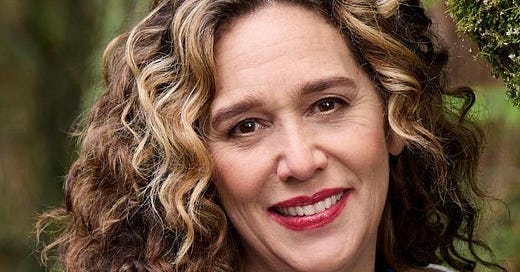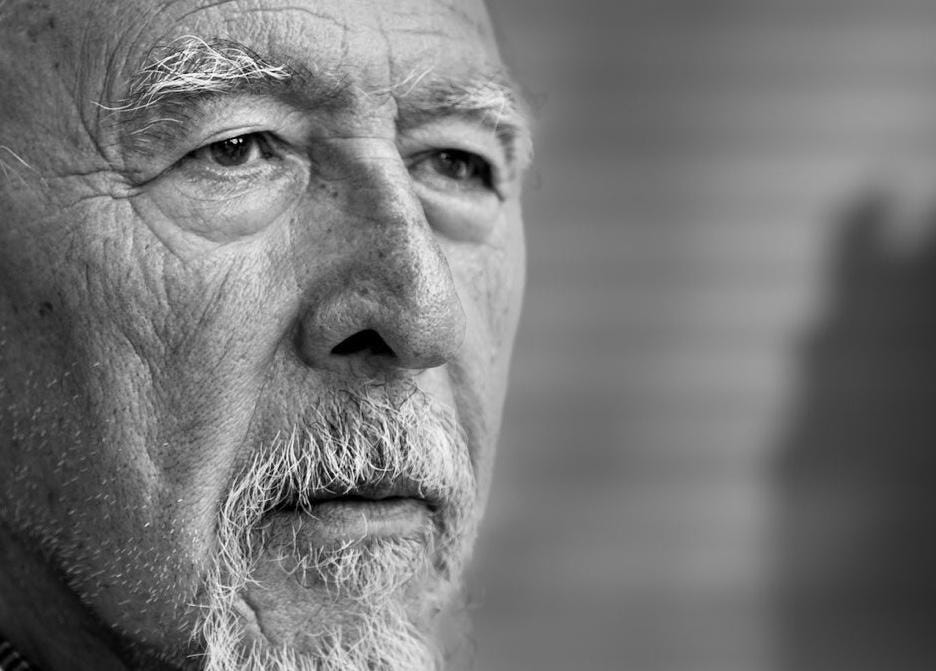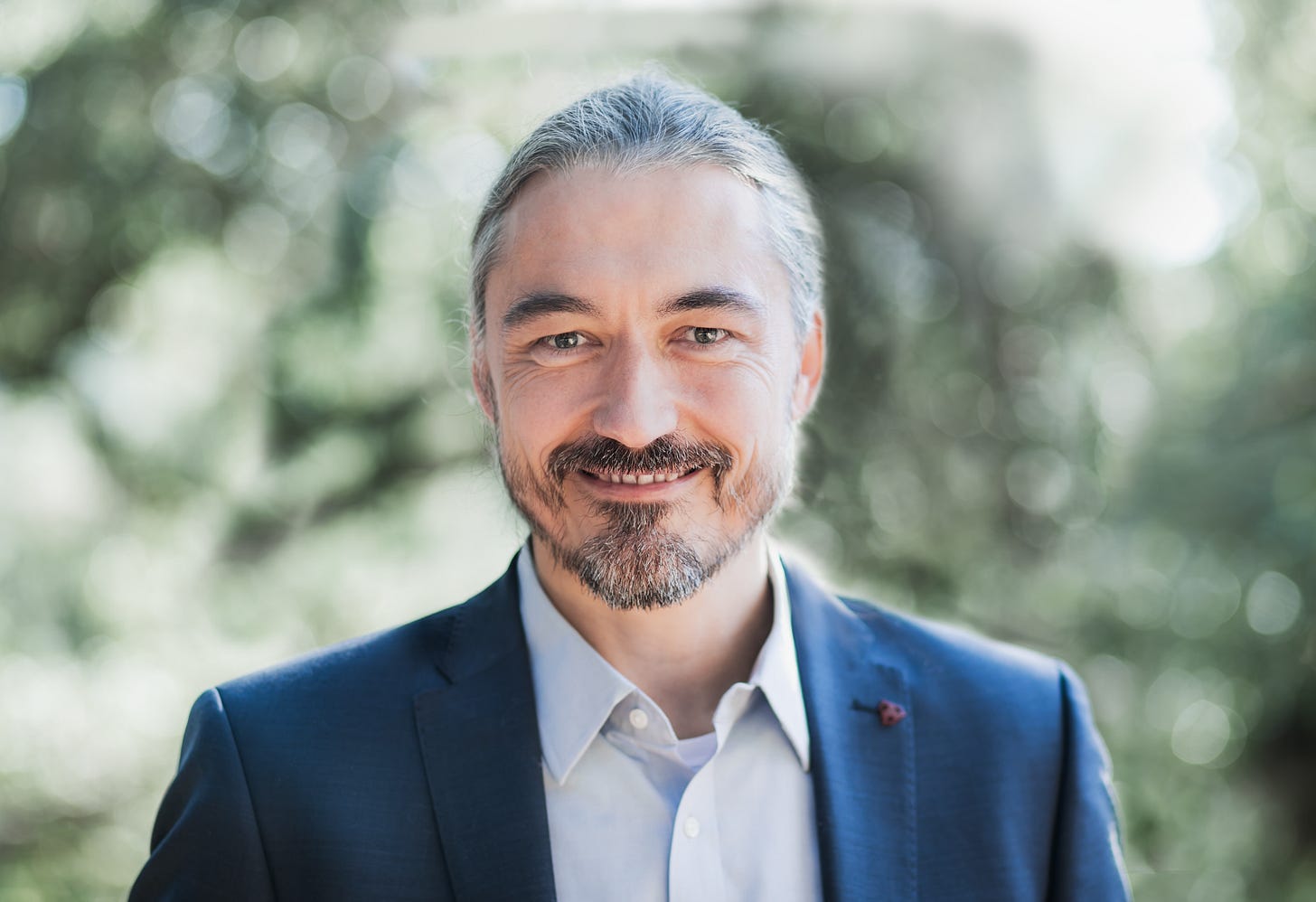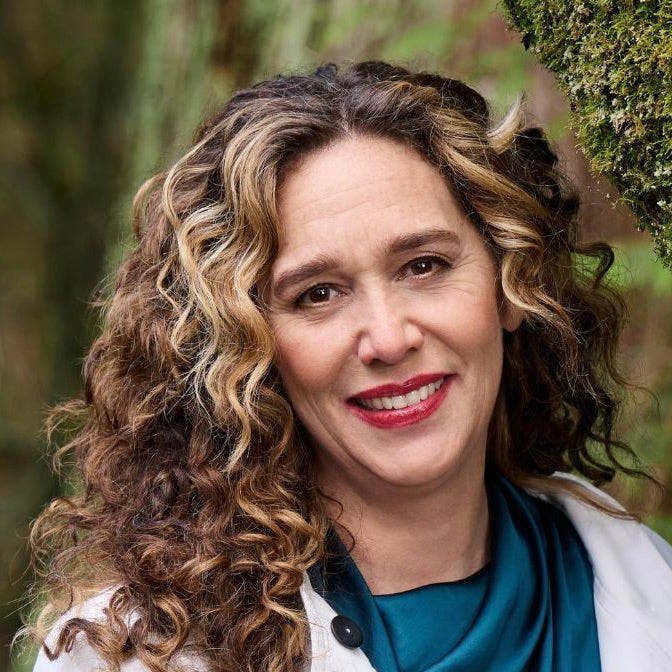Ten Key Moments in our 'Ecotone'
The Climate Consciousness Summit 2024 is free to watch all weekend.
If you liked reading this, feel free to click the ❤️ button on this post so more people can discover it on Substack 🙏
Resonant World #117
I don’t know of an event quite like it.
What encouraged me most about the conversations I hosted for the Climate Consciousness Summit 2024, is how open the people leading the fight to preserve a habitable planet are to learning from the collective trauma healing movement.
On a personal level, I find this very heartening, since I’ve somehow found myself occupying a role straddling these two worlds.
Four days a week, I work as an editor at the nonprofit climate news service DeSmog (a summit partner) to illuminate the companies and individuals working to delay action on the climate and ecological crises. Much of the rest of the time, I’m training as collective trauma integration facilitator, or writing about collective healing and making podcasts for Resonant World (and sometimes its sister publication ).
I may be guilty of over-using this metaphor, but the collision between the climate movement and the collective healing movement feels to me as rich as the outrageously fecund borders where ecosystems converge; saltwater mixing with freshwater estuaries; forest turning to field; the edge of polar ice. (Apparently, these transitional spaces in nature are called “ecotones”).
I loved creating our very own “ecotone” at the summit, and if you feel an impulse to browse some of our conversations this weekend, you can do so by registering here — everything is free to watch until Sunday night, and thereafter as part of the summit package.
I’ve shared 10 of the quotes from the keynote conversations and live sessions that have stayed with me below — but there’s plenty more to discover.
Meanwhile, we still have a few spots left on the one-day workshop that summit guest and climate psychologist Steffi Bednarek, (who appeared on the Resonant World podcast in February), and I are co-hosting at The Conduit in London on Saturday, December 7.
We are going to be supporting a small group of people to explore the professional dilemmas they’re experiencing in relation to the climate crisis.
We called the workshop “Should I Stay, or Should I Go?” to reflect the dilemma I spoke about in a video of the same title in July last year: (Resonant World #35: Should I Stay, or Should I Go?). Tickets are £275 including lunch, and you can register here.
Ten Key Quotes from the Climate Consciousness Summit 2024
To watch the summit, register here.
Melinda Janki, lawyer fighting ExxonMobil in her home country of Guyana
“Either we fight the fossil fuel industry and we survive, or the fossil fuel industry survives. It’s one or the other.”
You can read my interview with Melinda on DeSmog here.
Angaangaq Angakkorsuaq, Indigenous advocate and healer from Greenland
“The biggest eagle in the North American continent is in Greenland. We call her Nattoralik, which is a sea eagle, the one who lives off the ocean. And she has more than three meters’ wingspan. When we see her, we touch our heart, ‘Oh, I want to be like her one day. I want to be able to soar like an eagle and reach new heights inside myself, which I thought I could never reach.
“If the bird doesn't have equal strength on both sides of the wings, she can never fly. She can never soar. Just like you and I, when we’re not in balance within ourselves, how can we go deeper inside ourselves, both in the mind and in the spirit?”
Karen O’Brien, climate and biodiversity scientist, and author of You Matter More Than You Think: Quantum Social Change for a Thriving World
“When we talk about paradigm shifts, people are often just waiting for the paradigm shift to happen, waiting for people to shift consciousness — rather than embodying it, and living the paradigm shift. And that takes practice. And so people would come up to me often and say what does quantum social change mean in practice? And, and I just say ‘it means that practice matters’.”
You can follow Karen’s work at
.Zonne Groenberg, activist and circle co-host at the Resilience Project
“I’m 21 and my brain isn’t fully developed yet, and I have to do so much because I’m so worried about the state of the world. It’s good that we are leading, but I am pissed off that we have to lead.
“I don’t have a passion for youth leadership, I think it shouldn’t have to exist. But I am really glad that we are here together, showing that we really care.”
Steffi Bednarek, climate psychologist and author of Climate, Psychology and Change
“I think it’s really helpful to look at the different parts in us: To look at the part that heroically wants to save the world, single-handedly, and feels like ‘I know the way, everybody follow me.’ To look at the parts that suffer; to look at the parts that deeply care, and to relate to them. Not to allow individual parts to take over, but to act from a place of deep connection with all of these conflicting, contradictory parts.”
Thomas Hübl, international facilitator and author of Healing Collective Trauma
“Sometimes we look at the next generation, and say it has high degree of fear. Or we could say, ‘the archaeology of our unintegrated past has to surface somewhere for it to be digested and integrated, and for post-traumatic learning to happen.’”
Charlie Martin, a Somatic Coach and circle co-host at the Resilience Project
“It’s about honouring the part that grief plays in our lives. When we come together in communities, when we’re facing it as a group, that’s so much easier for our systems, for our bodies. This is part of the project I’m creating, helping young women in women’s circles to come together and face these difficult issues.”
Kritee (Kanko), Zen Buddhist priest and grief-rage ceremony leader
“My favourite phrase here is that ‘we are all walking around with trauma’ — and it’s like traumatized bodies with layers of makeup — and then make money in this hyper-individualistic, capitalist world to try to cover our layers of grief with more cars, bigger houses, more consumption.
“So that trauma and that shame, that inadequacy, that comes from not having taken care of each other’s pain, is driving us to embrace a system that is killing our Mother Earth. So this trauma healing work is essential.”
Lindsey Gulden, former ExxonMobil data scientist-turned climate whistleblower
“By definition, the fact that I was working to enable the oil industry means that I was working to enable what they are doing to society.
“I am complicit. I am the perpetrator, and the perpetrator looks like me.
“Because I am complicit, I have responsibility. And I have more responsibility, knowing what I do about the inside of the oil industry, knowing what I do about climate change, and the existential threat that it poses to us, to our children and to our grandchildren. I have much more responsibility than the average person to stand up and speak.”
You can read my interview with Lindsey at
and on DeSmog.Tzeporah Berman, Chair of the Fossil Fuel Non-Proliferation Treaty
“I was in the heart of the Amazon in a very small village, and I was strategizing with a number of Indigenous leaders on how to stop oil development in the Amazon in Ecuador. And late in the night, we’re having tea, and I was sitting with one of the elders, a shaman, And he had recently gotten a computer and Wi-Fi and a solar panel, and he turned to me, and he said, through two interpreters, ‘I’ve been studying your people, and I’d like to ask you a question. Is it true that your whole society defines wealth based on this paper money that you've created?’
“And it was just one of those moments in my life that I will never forget, because the question was so simple, and it also rocked so many of my ideas of who I was and what I was doing there, and who they were.
“And I said, ‘Yes, that’s true. Tell me how you define wealth.’ And he said, ‘Well, it’s very simple. We define wealth as love, a strong community, and a healthy forest that brings us our air and water and food and medicine.
“And their life philosophies, their plans, their everything, all stem from those three things. And in a lot of ways, for someone who’s very heady, who spent a lot of time in university studying economic theory and political theory, it was just a moment where everything just kind of ground to a halt, and then shifted into place for me.”
You can read my interview with Tzeporah on DeSmog here.
Note from the Editor: It’s a big boost when people become paid subscribers, and support of any amount energises my mission. Thank you!












There is so much richness in your Ecotone, Matthew Green and Climate conscious team, it gives me hope in what is already happening because this looks like a catastrophic tipping point to me ! but if i can take care of my reactive parts then i can be better re-Sourced within my collective communities. Thank you for bringing psychology, IFS and quantum science together with a wisely trauma informed perspective!
So matthew, If you are guilty of over stating how our collective crises is reflective of our inner traumatic wounding, it may be worth repeating! If repeating means restating reframing or resetting how we talk about this crises of consciousness in our media streams, please do continue speaking out with clarity and forums like the climate consciousness summit and other c+ pocket project creative endeavors!
It seems to me This what can help us compassionate planet protectors avoid overly protective helicopter mama moves and instead focus on how to livestream simple yet powerful media messages like this one by Melinda Janki, lawyer fighting ExxonMobil in her home country of Guyana
“Either we fight the fossil fuel industry and we survive, or the fossil fuel industry survives. It’s one or the other.”
Simple as this.
Oh yes…and maybe more “before” and “after” pictures to go with. I look forward to seeing how we can continue to be creative in how we align and finely attune our collective healing fields🙏
I was struck by many of these quotes as well, but Zonne’s landed deeply when I heard her say it, in that I saw how the youth have become parentified, like a small child who begins coping by taking on responsibility way beyond there years because the parents are incapacitated with their own inner child wounding, that they can’t show up as parents and take care of the child and allowing the child to be at the age and stage that it is in its development.
I can understand that feeling of straddling two worlds. I felt a two different world-ness between the talks with the climate activists and the other talks. But I did notice as you say that most activists saw contemplation, grounding in community, some meditation and the need for healing important in their work. I’ve been deeply steeped in the healing side of the equation and I guess I haven’t heard activists speak before and I didn’t realize healing at the root wasn’t a big part of the process. I left the summit understanding that the Climate, or all crisis, hasn’t been seen as a need for healing, but that now those two rivers are beginning to join together. I’m excited to keep processing and exploring and seeing what’s possible. And thank you for all the work you put into the summit and how your intention to bridge these two worlds is manifesting through this work.